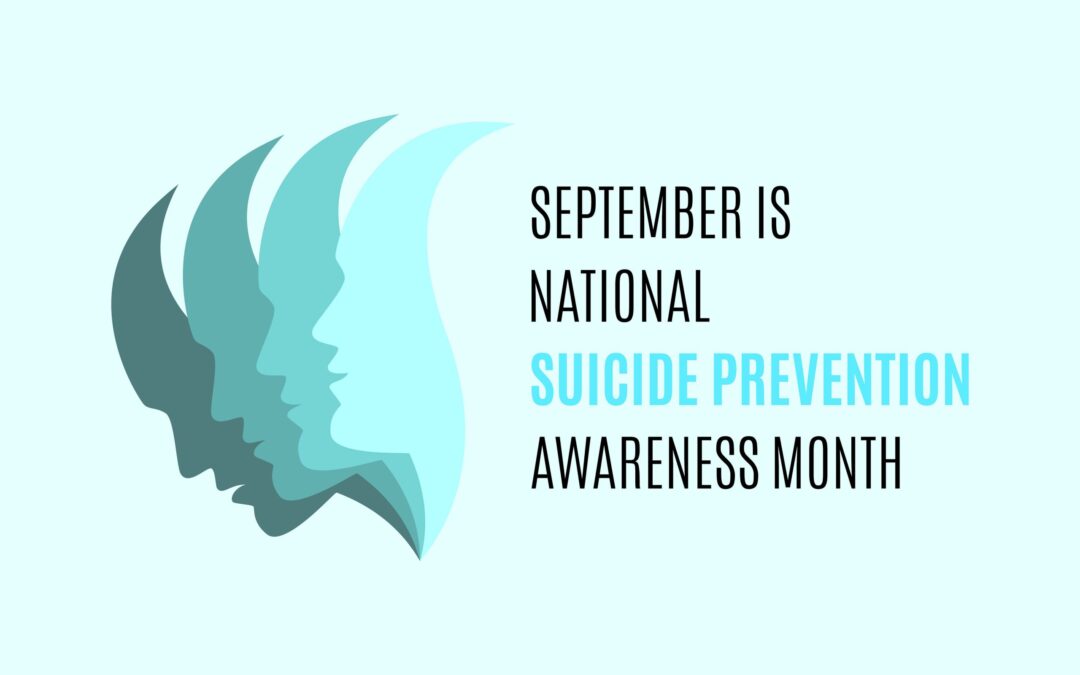September is National Suicide Prevention Month, a solemn yet vital occasion to address a global crisis that claims the lives of too many individuals each year. Let’s work together to shed some light upon the darkness that shrouds this deeply sensitive topic.
Suicide, often spoken of in hushed tones or met with fear and misunderstanding, is an issue that affects us all, directly or indirectly. It is a complex, multi-faceted challenge, entwined with mental health, societal stigmas, and personal struggles. But as September dawns, we come together as a community of compassion, dedicated to understanding, prevention, and healing.
National Suicide Prevention Month is a call to action, a beacon of hope, and a reminder that we can make a difference. Join us on this journey, and together, let’s take meaningful steps to prevent suicide and promote mental well-being in our communities.
How can I help promote suicide prevention and awareness?
Promoting suicide prevention and awareness is a vital endeavor that requires both individual and collective efforts. Here are several ways you can make a positive impact:
Educate Yourself
Start by learning about the causes and risk factors associated with suicide. Understanding the problem is the first step in addressing it effectively. Know the warning signs of immediate risk and when to call the suicide prevention line—the Suicide Prevention Resource Center says: “The following three should prompt you to immediately call or text 988 (988 Suicide & Crisis Lifeline) or call a mental health professional.
- Talking about wanting to die or to end one’s life
- Looking for a way to end one’s life, such as searching online or obtaining a gun
- Talking about feeling hopeless or having no reason to live
Raise Awareness
- Share information and resources about suicide prevention on your social media platforms.
- Participate in campaigns and events related to suicide prevention, especially during National Suicide Prevention Month in September.
Foster Open Conversations
Encouraging open and non-judgmental discussions about mental health with friends and family is a pivotal step in breaking down the barriers surrounding this sensitive topic, and one of the best ways to prevent suicide.
By creating a safe space for these conversations, we can help reduce the stigma associated with mental health issues. Equally important is the act of active listening when someone reaches out to share their feelings and experiences.
Offering your undivided attention, empathy, and support can make a world of difference to someone struggling with their mental health. It’s through these conversations and connections that we can foster understanding, provide comfort, and encourage individuals to seek the help they may need.
Share Helpline Information
Keep suicide prevention helpline numbers handy, and share them with anyone who might need them. The National Suicide Prevention Lifeline can be reached by dialing 988 in the United States.
Support Mental Health Initiatives
- Volunteer with organizations dedicated to mental health help and suicide prevention.
- Donate to mental health charities and non-profits that work towards suicide prevention and support for individuals in crisis.
- Encourage self-care practices in your own life and among your friends and family. Stress the importance of seeking professional help when needed.
Be Mindful of Language
Avoid using stigmatizing or judgmental language when discussing mental health and suicide. Language matters, and it can impact how individuals perceive and seek help for their struggles.
Participate in Training
Consider taking courses or workshops on suicide prevention, such as Mental Health First Aid, which can provide you with valuable skills and knowledge.
Share Personal Stories
If you or someone you know has experience with mental health challenges or suicide, consider sharing your story. Personal narratives can reduce stigma and offer hope to others facing similar struggles.
Advocate for Policy Changes
Support policies and legislation that prioritize mental health and suicide prevention, including improved access to mental health care and reduced access to lethal means. There is significant work to be done in policies pertaining to suicide prevention for teens and in suicide prevention for veterans in particular.
Check In Regularly
Make it a habit to check in on friends and loved ones, especially if they’ve been going through a difficult time. A simple, “How are you feeling?” can make a world of difference.
Remember, suicide prevention is an ongoing effort that requires compassion, understanding, and persistence. Every small action you take can contribute to saving lives and reducing the stigma surrounding mental health issues.
the road to wellness starts by seeking help. today.
Built on the principles of assertive community treatment, Galen Hope is an eating disorder and mental health treatment center offering individualized treatment options that include Intensive Outpatient (IOP), supported housing, and Partial Hospitalization Programs (PHP). As a “Community of Integrated Wellness,” we pride ourselves in fostering a thoughtful and meaningful care experience that can guide our clients on their road to recovery and increased quality of life, regardless of diagnosis. Galen Hope currently offers separate, age-specific programming for adolescents ages 12-17 and adults 18 and up, of all genders.
To learn more, or to join our community for integrated wellness, please contact us today.
Belong. Heal. Grow.

